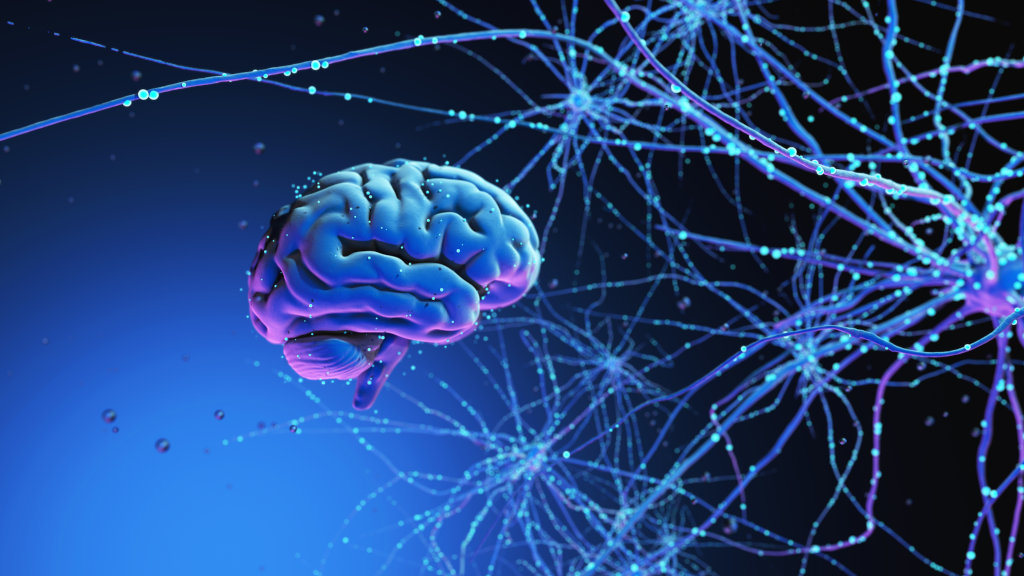What Is Wet Brain? Symptoms, Treatment and Recovery Plan Doc

What is wet brain? Wernicke-Korsakoff syndrome, also known as wet brain, is a brain condition caused by thiamine (vitamin B1) deficiency, often associated with chronic alcohol use.
Use this resource to learn more about wet brain from alcohol: what it is, what symptoms and behaviors look like and how this condition can be treated.
Worried about wet brain? Call now for help.
What Is Wet Brain?
Wet brain is a brain disorder that can result from a lack of vitamin B1, often associated with alcohol use disorder. It causes memory issues and other cognitive challenges.
The medical term for this condition is Wernicke-Korsakoff syndrome (WKS). The syndrome occurs in two phases:
- Wernicke’s encephalopathy: During this acute phase, the individual experiences confusion, muscle weakness, tremors and hallucinations. If left untreated, this stage can progress to Korsakoff syndrome.
- Korsakoff syndrome: Also referred to as Korsakoff psychosis, this is a long-term (chronic) memory disorder.
Are you or someone you love showing signs of Wernicke-Korsakoff syndrome? Take control of recovery: Download the free 4-Week Wet Brain Recovery Planner from Detox.com to track treatment, nutrition and progress.
Is Wet Brain Reversible?
Yes, wet brain is sometimes reversible, depending on the stage that treatment begins. Wernicke’s phase can be reversible with rapid thiamine treatment and alcohol abstinence.
In some cases, Korsakoff syndrome may improve over time, while in others, the damage is permanent. Early intervention and treatment during the Wernicke phase improves outcomes.
Wet Brain Symptoms
What are the first signs of wet brain? Following are the signs and symptoms of wet brain, broken down by the two phases of Wernicke-Korsakoff syndrome.
Wernicke (acute)
- Confusion/apathy: The individual has trouble focusing and experiences sudden disorientation.
- Ataxia: The person has poor balance or an unsteady gait and may suffer falls.
- Eye problems: Common issues include double vision, abnormal eye movements and droopy lids.
Korsakoff (chronic)
- Severe memory loss: The person can’t form new memories and forgets recent events.
- Confabulation: Due to memory issues, the individual unintentionally “fills gaps” with made-up details.
- Learning problems: The individual’s attention and problem-solving are slow or impaired.
Wet Brain Behaviors
If you believe you are witnessing signs of wet brain in a loved one, watch for the following wet brain behaviors:
- Irritability or apathy: This involves feeling flat or being quick to anger.
- Disinhibition/poor judgment: The person is making risky choices or is having trouble making plans.
- Getting lost in time/place: The individual repeats questions and misses appointments.
- Social withdrawal: Symptoms include avoiding work/family and neglecting hygiene.
Help is available. Call now to speak with someone.
What Causes Wet Brain?
Individuals with an alcohol use disorder (AUD) may develop wet brain from alcohol consumption. How does wet brain from alcoholism happen? Alcohol interferes with the body’s ability to absorb nutrients, which can lead to severe vitamin deficiency.
Further contributing to this deficiency is the general malnutrition that people with an alcohol use disorder typically experience. It is common for individuals with AUD to drink their calories rather than eat a proper diet that provides the nutrients they need.
The result? Thiamine deficiency. When the body doesn’t get enough vitamin B1, many tasks become difficult for the brain to complete. The brain suffers damage that can affect memory and even personality.
Other risks for developing wet brain include conditions that could also lead to thiamine deficiency:
- Eating disorders
- Persistent vomiting
- Bariatric/GI surgery
- Cancer/chemo
- Severe malnutrition
How Long Does It Take to Develop Wet Brain?
How long it takes to develop wet brain varies. For many, the syndrome develops after years of heavy alcohol use. For others, symptoms may begin after just a few days of thiamine deficiency and come on suddenly.
Many factors can influence how long it takes to develop wet brain. Underlying health conditions, dual diagnosis, age, nutrition habits and amount of alcohol consumption can all affect how quickly the syndrome develops. For some, it can appear acutely during a severe deficiency or illness.
Final Stages & Complications
If Wernicke’s syndrome progresses, brain damage can become permanent. Untreated, the syndrome can lead to coma or even death.
During the final stages of wet brain, an individual experiences persistent amnesia and requires intensive care. At this stage, the brain has experienced extensive damage, making it impossible for the person to care for themselves.
This makes early recognition of the syndrome important. Immediate treatment can save brain function and prevent progression of the condition.
Wet Brain Treatment
Proper treatment for wet brain involves immediate medical care and follow-up mental health care.
Wet brain syndrome treatment should include:
- Thiamine treatment: Clinicians can provide high-dose thiamine via IV or orally to treat the deficiency.
- Magnesium is required to properly absorb and activate thiamine and it may also be prescribed.
- Note: This treatment should be given before carbohydrates. Giving glucose without thiamine when someone is experiencing a deficiency can worsen symptoms.
- Alcohol cessation: It is important to cease alcohol consumption.
- This can occur through medically supervised detox with follow-up relapse-prevention medications and aftercare.
- Nutrition rehab: Thiamine deficiency treatment involves a balanced diet, B-complex and folate as directed by clinicians.
- Rehab & cognitive support: An individual experiencing Wernicke-Korsakoff syndrome should receive support to address alcohol use disorder and any symptoms resulting from wet brain.
- This can include inpatient or outpatient programs, cognitive behavioral therapy, memory strategies, occupational therapy and family education.
Wet Brain Recovery Planner (Free Download)
Recovery from wet brain doesn’t end with hospital discharge. Recovery takes daily structure and medical follow-up to protect brain function and prevent relapse.
That’s why Detox.com created the Wet Brain Recovery Planner, a free four-week worksheet and tracker designed to help patients and caregivers stay on track with treatment.
The planner includes checklists for appointments, medications, therapy tasks, nutrition and relapse prevention, plus a daily log to monitor symptoms and progress.
Download it below or print a copy to bring to appointments. If symptoms worsen or you need help finding medical detox or rehab, call 800-996-6135 for free placement support: this is your first step toward long-term recovery.
Download the Wet Brain Recovery Planner
Wet Brain vs. Alcohol Poisoning
Alcohol poisoning is an acute condition of intoxication. Too much alcohol is in the bloodstream, causing an alcohol overdose. It can affect breathing and can cause unconsciousness.
In contrast, wet brain is a nutritional brain injury from B1 deficiency that may co-occur with heavy alcohol use over time.
Wet Brain Diagnosis
Clinicians can diagnose Wernicke-Korsakoff syndrome by conducting an evaluation to look for signs of wet brain. Symptoms, combined with a history of alcohol use and poor nutrition, can lead clinicians to a WKS diagnosis.
Blood tests can also be conducted to determine thiamine levels. In some cases, the doctor may order an MRI to check for brain damage or to rule out other conditions. However, due to the potential for severe progression of the condition, clinicians typically treat for WKS if it is suspected, then test second.
Prevention for Wet Brain
To prevent wet brain, take the following steps:
- Reduce or stop alcohol consumption
- Eat a balanced diet
- Receive routine medical care
- Take thiamine supplements if you’re at risk
Real-World Examples
Urgent care is critical:
- Kevin had been abusing alcohol for years. One day, his wife noticed that his eyes looked droopy.
- When she asked if he was ok, he became confused and was unable to get up from his chair.
- Kevin was rushed to the hospital and received immediate thiamine treatment and recovery support, which improved his symptoms and stabilized his condition.
- Kara had been abusing alcohol for years.
- When she exhibited symptoms of wet brain, the signs were not recognized as Wernicke syndrome, and she did not receive immediate treatment.
- She suffered irreparable brain damage and now has persistent memory deficits which are worsening as she continues to consume alcohol.
Get Help for Wet Brain
If you suspect that someone needs wet brain treatment, get an immediate medical assessment of their symptoms. Don’t hesitate to reach out for help. Every day counts.
And don’t wait for the day when treatment for wet brain is needed. Prevent this syndrome by taking steps toward addiction recovery. Support is available now for alcohol use disorder.
Start your recovery today: Find a qualified treatment provider near you or call 800-996-6135 for immediate support.


